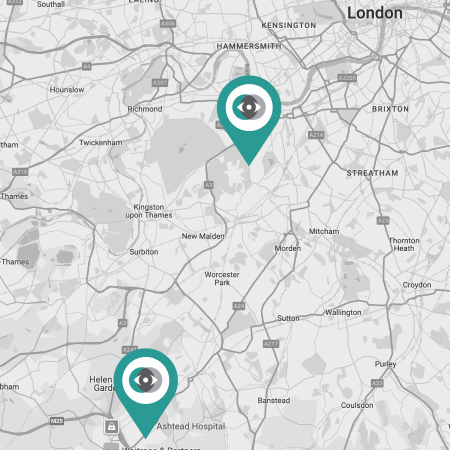
What are the disadvantages of cataract surgery?
Cataract surgery is one of the most common and effective medical procedures performed around the world. It has helped millions of people regain their sight and continue with their daily lives. Despite the high success rate and minimal risks, it is important to consider the potential disadvantages and complications associated with cataract surgery. In this blog, we will delve deeper into the possible disadvantages and what you should be aware of before deciding on cataract surgery.
What is Cataract Surgery?
Cataract surgery is a procedure that involves the removal of the clouded natural lens in the eye and replacing it with an artificial intraocular lens (IOL). This is often a day surgery performed under local anaesthesia, and recovery is typically quick. Most people experience significant improvement in vision immediately after the procedure, but as with any surgery, there are potential risks and complications.
Disadvantages of Cataract Surgery
While cataract surgery has a high success rate, there are a few disadvantages and risks to consider:
- Risk of Infection: As with any surgery, infection is a potential risk. However, the risk of infection following cataract surgery is very low. Surgeons take extensive precautions, and the use of antibiotics during surgery which significantly reduces this risk. Nevertheless, infections can lead to serious complications, so it's important to follow the post-operative care instructions precisely.
- Possible Complications: Although rare, cataract surgery can sometimes lead to more severe complications, such as retinal detachment, bleeding, or swelling in the eye. In some cases, these complications may require further treatment or even another surgery. The risk of these complications can be minimised by choosing an experienced surgeon and adhering to aftercare instructions.
- Glare and Halos: Some patients experience glare or halos around lights, especially at night, after cataract surgery. This phenomenon, known as dysphotopsia, can be particularly noticeable when driving at night or looking at bright lights. In most cases, these visual disturbances are temporary and fade within a few weeks to months. However, for some patients, they may persist and require additional adjustments, such as the use of specialised lenses or glasses.
- Need for Glasses: Although cataract surgery improves vision, some patients may still need glasses for certain tasks, like reading or driving at night. This is particularly true for people who opt for a basic monofocal lens implant. While multifocal or toric lenses can address near and far vision, they might not completely eliminate the need for glasses. We will discuss the best lens options based on your needs.
- Retinal Changes: Although rare, the artificial lens used in cataract surgery can sometimes affect the retina. Changes in the retina, such as macular edema (swelling in the macula), can cause blurred vision. This condition can typically be treated with medications, but it may require additional visits to your eye doctor.
- Secondary Cataract (Posterior Capsule Opacification): In some cases, a cloudy membrane may form behind the intraocular lens, known as a secondary cataract or posterior capsule opacification (PCO). PCO is not a true cataract, but it can cause blurred vision similar to the original cataract. Fortunately, this condition can usually be treated with a quick, painless laser procedure called a YAG laser capsulotomy.
While cataract surgery has an excellent success rate and offers life-changing benefits, it's important to be aware of the possible risks and disadvantages. Most patients experience minimal complications and enjoy improved vision for many years. However, understanding the potential drawbacks allows you to make a fully informed decision about whether cataract surgery is right for you. Overall the risks are incredibly low and the chance of a major complication is less than 1 in 500.
If you're considering cataract surgery or just want to know more about your eye health, take our free self-test to evaluate if cataract surgery is the right choice for you.
Are you suitable for vision correction surgery?
It isn’t suitable for everyone.
The first step is to book an assessment so you can find out whether you can benefit.
Our most popular procedures
What our patients say…
★ ★ ★ ★ ★“Excellent result. Complete confidence in Paul Ursell. Quiet, quick, and efficient. Peaceful and comfortable hospital.”
★ ★ ★ ★ ★
“The cataract surgery on both of my eyes went very smoothly without any problems. There was no pain afterwards and I didn’t have to wear any eyepatch. I would highly recommend Professor Ursell for cataract surgery.”
★ ★ ★ ★ ★“Highly professional, extremely efficient, and an excellent communicator, Paul exudes experience, knowledge, and ability. The whole process — initial consultation, operation, and post-op check-up — was wonderfully stress-free. I now have 20/20 vision, am glasses-free, and I am delighted by the results.”
★ ★ ★ ★ ★
“The cataract surgery has completely changed my life. Mr. Ursell put me at ease and explained all options. The procedure was quick and painless and completely successful, and I now have 20/20 vision in my good eye. One of the reasons I had the surgery was because of Mr. Ursell’s standing and experience. Cannot praise highly enough.”
★ ★ ★ ★ ★
“I was very short-sighted and my cataracts badly affected both reading and distance acuity. After the operation I now have very good distance vision (glasses-free) but still need glasses for reading. (This was the expected outcome as I did not want multi-focus implants). The operation was quick and painless, and I had no post-operative discomfort at all (which surprised me). The results are remarkable.
I can certainly recommend Professor Ursell. He is a personable consultant and a skilled surgeon.”
★ ★ ★ ★ ★
“Dr. Paul Ursell squashed many of my concerns for not having cataract surgery. He offered comfort with examples of his long/distinguished career and new technology that he applies to the surgery.
Both before and after the surgery, Dr. Ursell and staff gave me the information and attention I needed. It was a great success, and I highly recommend Dr. Ursell.”
We have replaced the images of real patients who provided these testimonials to protect their privacy.








